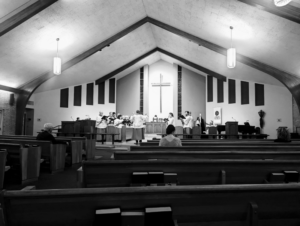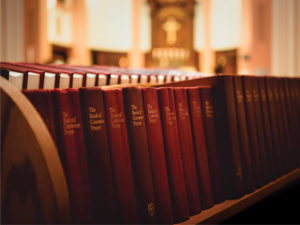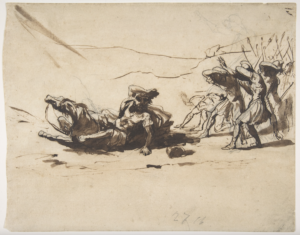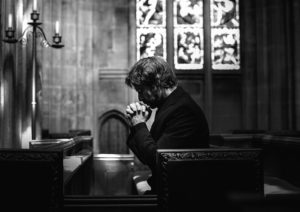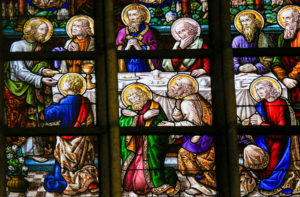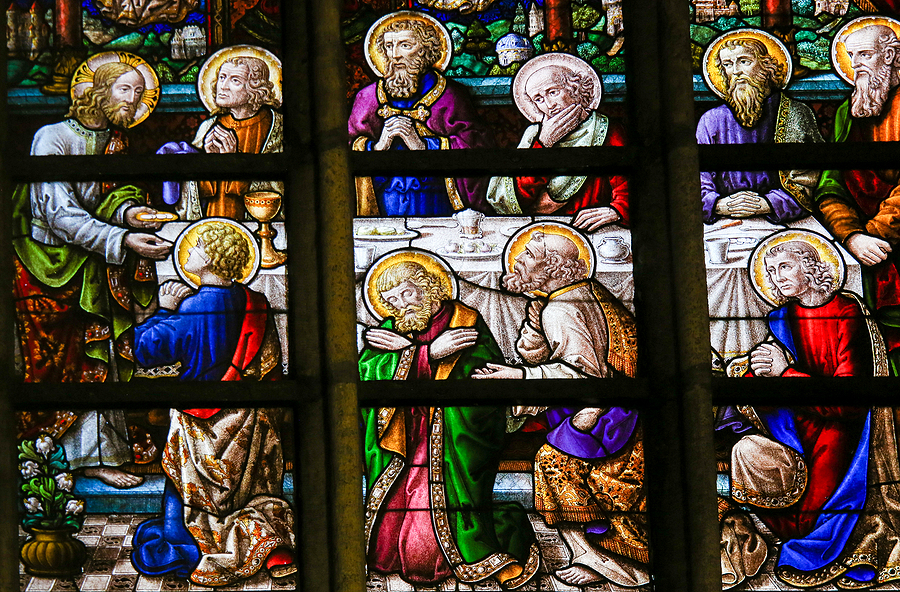
As we continue through Holy Week, we have now reached Maundy Thursday. On Maundy Thursday, we celebrate when Jesus first instituted the first Holy Communion service the night before he was arrested and crucified on Good Friday. And since that time, the church has included the Lord’s Supper as part of its worship. In the Acts of the first disciples and apostles, after the Holy Spirit poured out on them after Pentecost, it is recorded that “they devoted themselves to the apostles teaching and the fellowship, to the breaking of bread and the prayers.” From the time of the early Christians the Lord’s Supper was a regular part of worship as we read in Acts, but is also mentioned in the writings of church father Justin Martyr, where he describes the regular worship service as very similar to the way the Church has worship through all ages.
“But we, after we have thus washed him who has been convinced and has assented to our teaching, bring him to the place where those who are called brethren are assembled, in order that we may offer hearty prayers in common for ourselves and for the baptized [illuminated] person, and for all others in every place, that we may be counted worthy, now that we have learned the truth, by our works also to be found good citizens and keepers of the commandments, so that we may be saved with an everlasting salvation.
Having ended the prayers, we salute one another with a kiss. There is then brought to the president of the brethren bread and a cup of wine mixed with water; and he taking them, gives praise and glory to the Father of the universe, through the name of the Son and of the Holy Ghost, and offers thanks at considerable length for our being counted worthy to receive these things at His hands…”
Therefore it’s good to receive the Lord’s Supper regularly because it was the early church position, and we also believe it is a means of grace, along with the word of God and prayer, to help us grow in the grace and knowledge of our Lord Jesus Christ.
The Type and Shadow of Holy Communion: Passover (Exodus 12:1-14)
But where does the idea of Holy Communion come from, and why do we celebrate it?
In the gospel lesson, it says that Jesus was with his disciples the night before the Feast of the Passover, which hearkens back to the redeemer Moses and the Children of Israel. Pharaoh refused to let the people go, to let Israel leave Egypt to worship the Lord, so the Lord sent ten plagues on Egypt. The 10th was the darkest moment when the Passover was instituted as a memorial. The Lord was going to send the angel of death to kill all the firstborn persons or animals in Egypt unless they put the blood of a lamb on their doorposts. Each household of the people of Israel was to take a lamb and put its blood on the doorposts of the house so that the angel of death would “pass over” their houses and let their firstborn live. So for most of the history of Israel, they continued to celebrate the Feast of the Passover. Now we, the new Israel, have a Lamb’s blood that promises greater salvation than the blood on the doorposts in Egypt because Jesus had fulfilled the Passover when he was sacrificed on the cross; the blood of Jesus saves us from our sin, the devil, and this world.
Learning Humility and Service from Jesus: Washing the Disciples’ Feet (St. John 13:15)
It is Passover season, or before the Feast of the Passover, and Jesus is in the Upper Room with his disciples, and he’s continuing to prepare them for how they were to act or live after he gives his life for the sins of the world on the cross. He only had a few hours left before he would be arrested, so one of the things he teaches his disciples is how we are to love and serve one another, and he gives them an example by washing their feet, normally a servant or slave washed feet, but Jesus was also teaching them about humility. Only a couple of days ago, on Palm Sunday, we saw how Jesus enacts this humility as he rode into Jerusalem on a donkey and how in Philippians 2, St. Paul tells about how Jesus humbled himself to die on the cross. Jesus humbles himself more as he takes the place of a servant and washes the Apostle’s feet. Now I don’t believe we necessarily need to literally wash each others feet; the reason Jesus washed their feet was that they most often walked everywhere on dirty roads while wearing sandals or going barefoot, and their feet would get dirty. So they needed to be cleaned, and a servant or slave most often did this, though today we’re no longer required to do that, yet we are called to serve one another.
The Importance of Love and Unity in Holy Communion (1 Corinthians 11:17-26)
But by the time we get to the epistle, some of the Corinthians seem to have forgotten Jesus’ teaching. In the epistle from 1 Corinthians 11, it says that there were those who had plenty of food and wine and that before or while they had Holy Communion services, they were filling themselves with food and wine and ignoring or despising those who didn’t have much food or any at all, possibly these were the servants and slaves. So St. Paul rebukes them because Christians are one in Christ, and they need to treat their fellow believers the right way. Some people teach that before we come to the Lord’s Supper, we need to search our hearts and confess all our sins, which is true. But perhaps Paul is also saying we need to treat our fellow brothers and sisters with love and respect before we receive the Lord’s Supper. Jesus taught the disciples to love and serve one another in the gospel, and Paul is reconfirming this in the epistle. St. Paul is doing this because the Lord’s Supper was dividing God’s people rather than uniting them, and sadly this has been a problem throughout the history of the church. But the Lord’s Supper should unite us, not divide us.
Coram Deo
Maundy Thursday is about the Lord’s Supper or Holy Communion. It’s about the importance of the fundamentals of worship: the Apostolic Teaching, fellowship, the breaking of bread, and prayer. Jesus says when we receive the Lord’s Supper, we are to do this in remembrance of me, but in remembrance of what? Let us commemorate the origin of the Passover and how God acted through a redeemer. Most importantly, let us behold the Lamb of God, who takes away sins as a better redeemer. This do in remembrance of Jesus’ death on the cross. When we eat the bread and drink the cup, we proclaim the Lord’s death until he returns. May we approach the table with humility and confidence in Him. May God entreat us to have a heart of love, fellowship as we come to the table. Are you hungry and thirsty for righteousness? Come, we are all breaking bread together, and you have been invited to feast with the King.
Read: Holy Wednesday Reflection: Covenant Redemption of the Whole Man
Our Mission
To multiply faithful servants of Christ; who will commit themselves to the worship and doctrines of the Anglican way, and who will work by God's grace and for His glory to disciple the nations through the ministry of the Church.
